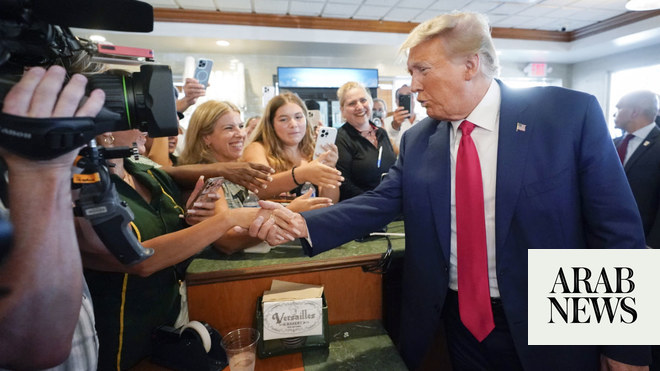
A federal judge has ordered that Chelsea Manning be released from jail in Virginia.
Chelsea Manning hospitalized after suicide attempt, legal team say
Read more
The former US army analyst who leaked hundreds of thousands of documents and diplomatic cables to WikiLeaks in 2010 had been held since May last year, when she was taken back into custody for refusing to testify to a grand jury investigating the pro-transparency organisation.
A hearing had been due on Friday.
Ordering Manning’s release, Judge Anthony J Trenga wrote: “The court finds Ms Manning’s appearance before the grand jury is no longer needed, in light of which her detention no longer serves any coercive purpose.”
Advertisement
Trenga rejected a request by Manning to cancel fines imposed for her refusal to testify, ordering instead that a judgment be entered against Manning for $256,000.
On Wednesday, representatives for Manning said she had attempted suicide at the Alexandria adult detention center.
In a statement, Manning’s representatives said she “has previously indicated that she will not betray her principles, even at risk of grave harm to herself.
“Her actions today evidence the strength of her convictions, as well as the profound harm she continues to suffer as a result of her ‘civil’ confinement.”
Dana Lawhorne, the Alexandria sheriff, said the incident “was handled appropriately by our professional staff and Ms Manning is safe”.
No further details were released.
Manning served six years in military custody for her part in the 2010 WikiLeaks disclosure, which was made via media outlets including the Guardian. Barack Obama commuted the rest of her 35-year sentence shortly before the end of his time in office.
Manning attempted suicide twice while held on the original charge, during which time she was held in solitary confinement, mounted a hunger strike and completed gender reassignment.
After her release she mounted a run for Senate in Maryland, a failure which she told the Guardian left her “closer and closer to being on the edge of really deep, dark depression”.
She also said she had been “exhausted” when, in May 2018, she tweeted a picture apparently showing her standing on a ledge several storeys above the ground.
Manning was first jailed for refusing to testify in March that year. She was released and then taken back into custody, telling the judge she would “rather starve to death” than appear before the grand jury.
In February this year she petitioned for her release, comparing her experience with the Trump administration’s defiance of congressional subpoenas.
Manning wrote that she had been “separated from my loved ones, deprived of sunlight, and could not even attend my mother’s funeral”.
She added: “It is easier to endure these hardships now than to cooperate to win back some comfort, and live the rest of my life knowing that I acted out of self-interest and not principle.”
An extradition hearing for Julian Assange, the founder of WikiLeaks, continues in London. In the US, Assange is charged with violating the Espionage Act.
In the UK and Ireland, Samaritans can be contacted on 116 123 or emailjo@samaritans.org. In the US, the National Suicide Prevention Lifeline is 1-800-273-8255. In Australia, the crisis support service Lifeline is 13 11 14. Other international helplines can be found at www.befrienders.org
You can’t make the news stop…
… but you can support a news organisation who’ll make sense of it. This is turning into a year like no other, and the swirl of news can be overwhelming. At the Guardian, we draw on all our experience to report the facts, the context, the big picture in tones that are steady and measured. We check the facts, explain the science and give you the information you need to make the right choices about your life.
You’ve read 146 articles in the last four months. More people than ever before are reading and supporting our journalism, in more than 180 countries around the world. And this is only possible because we made a different choice: to keep our reporting open for all, regardless of where they live or what they can afford to pay.
We have upheld our editorial independence in the face of the disintegration of traditional media – with social platforms giving rise to misinformation, the seemingly unstoppable rise of big tech and independent voices being squashed by commercial ownership. The Guardian’s independence means we can set our own agenda and voice our own opinions. Our journalism is free from commercial and political bias – never influenced by billionaire owners or shareholders. This makes us different. It means we can challenge the powerful without fear and give a voice to those less heard.
None of this would have been attainable without our readers’ generosity – your financial support has meant we can keep investigating, disentangling and interrogating. It has protected our independence, which has never been so critical. We are so grateful.
We need your support so we can keep delivering quality journalism that’s open and independent. And that is here for the long term. Every reader contribution, however big or small, is so valuable. Support The Guardian today from as little as £1 – and it only takes a minute. Thank you. Support the Guardian from as little as $1 – and it only takes a minute. Thank you.












